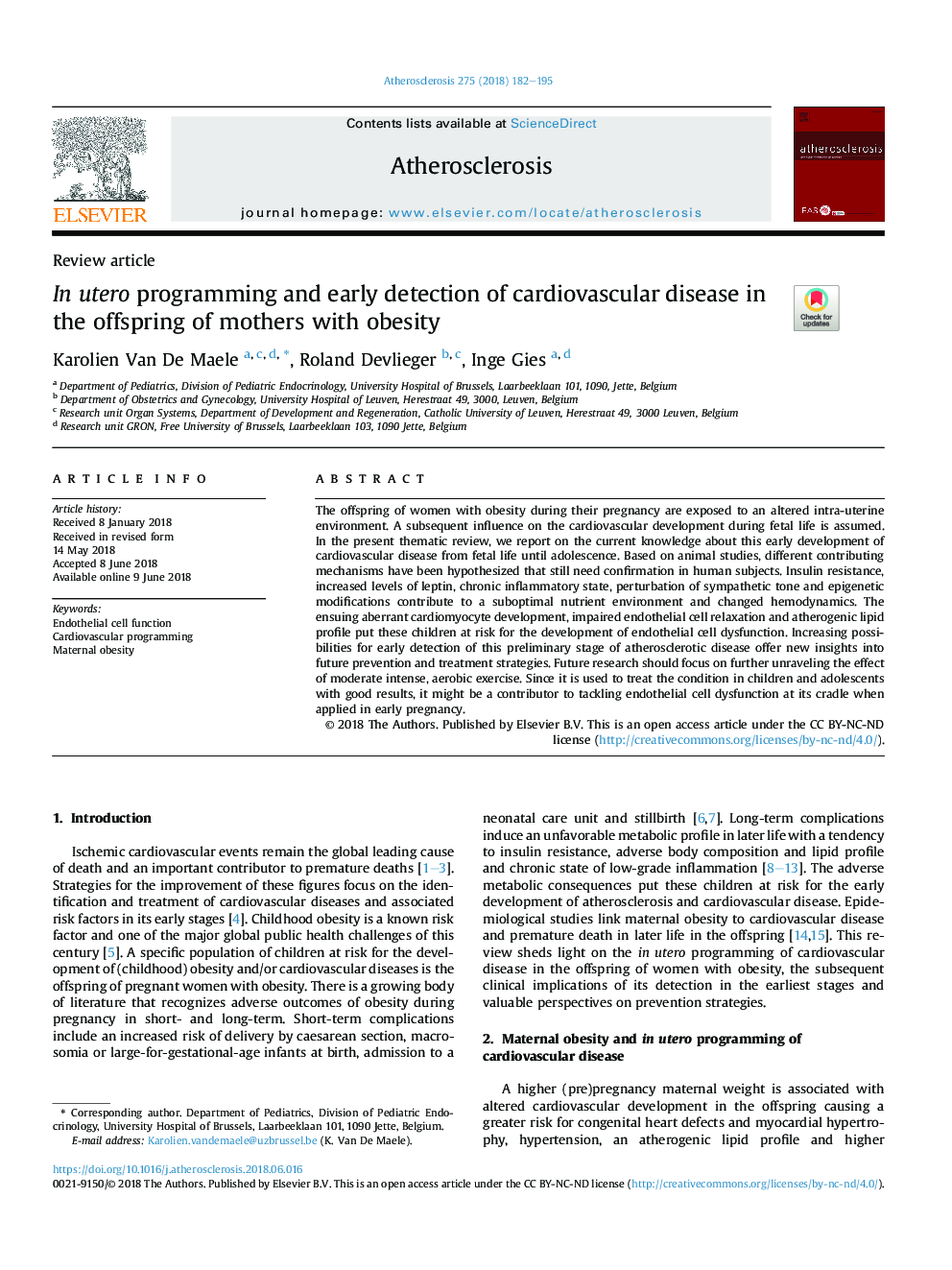| Article ID | Journal | Published Year | Pages | File Type |
|---|---|---|---|---|
| 8656649 | Atherosclerosis | 2018 | 14 Pages |
Abstract
The offspring of women with obesity during their pregnancy are exposed to an altered intra-uterine environment. A subsequent influence on the cardiovascular development during fetal life is assumed. In the present thematic review, we report on the current knowledge about this early development of cardiovascular disease from fetal life until adolescence. Based on animal studies, different contributing mechanisms have been hypothesized that still need confirmation in human subjects. Insulin resistance, increased levels of leptin, chronic inflammatory state, perturbation of sympathetic tone and epigenetic modifications contribute to a suboptimal nutrient environment and changed hemodynamics. The ensuing aberrant cardiomyocyte development, impaired endothelial cell relaxation and atherogenic lipid profile put these children at risk for the development of endothelial cell dysfunction. Increasing possibilities for early detection of this preliminary stage of atherosclerotic disease offer new insights into future prevention and treatment strategies. Future research should focus on further unraveling the effect of moderate intense, aerobic exercise. Since it is used to treat the condition in children and adolescents with good results, it might be a contributor to tackling endothelial cell dysfunction at its cradle when applied in early pregnancy.
Related Topics
Health Sciences
Medicine and Dentistry
Cardiology and Cardiovascular Medicine
Authors
Karolien Van De Maele, Roland Devlieger, Inge Gies,
